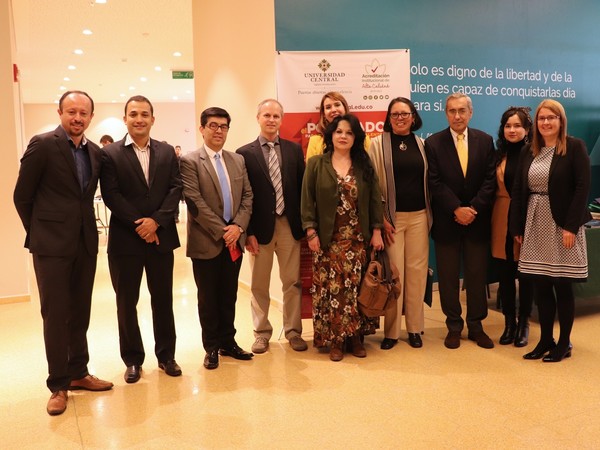RCPTM may help with water treatment in Colombia in the future. The centre’s representatives have agreed with their partners at Universidad Central, Bogotá, Colombia, on a joint project aimed to research and develop nanomaterials-based technologies for treating waters contaminated with heavy metals.
The idea of active collaboration began to form about a year ago during a visit of the Vice-Rector of Universidad Central, Óscar L. Herrery Sandoval, in Olomouc. “While taking a tour of RCPTM’s laboratories, he became very interested in water remediation technologies using iron nanoparticles. Water contamination is a critical issue in Colombia. With respect to a fast-growing leather industry, the country faces the problem of its watercourses becoming contaminated with hexavalent chromium; illegal gold mining, in turn, leads to contamination of the environment with toxic mercury,” said Jan Filip, head of the RCPTM’s Environmental Nanotechnologies Group.
RCPTM research in this area was presented by Jan Filip and Eleni Petala at a specialist conference last October, which was organized by Universidad Central.
“Our presentation was mainly focused on the properties of iron nanoparticles and their potential for water remediation. We have also agreed on further collaboration as part of a project that our colleagues in Colombia are preparing. The collaboration is likely to involve, among other things, exchanges of experts, consultations and cooperation with students. We may provide our expertise, test our nanoparticles in the target environment or, perhaps, develop new materials tailored to the environmental problems there. Our Colombian partners have expressed a keen interest in the collaboration, and it’s clear that it could produce tangible outcomes benefitting Colombia in general,” added Filip, who visited, with his colleague, other Colombian universities and made valuable contacts with different scientists.
The leather industry is central for Colombia’s economy. However, wastewater with high organic content, suspended solids, phenols or chromium is released by factories, often small family-run businesses, into the Bogotá River without a proper remediation process. The water treatment systems developed so far are effective yet expensive, or generate large amounts of sludge which is difficult to process. Experts are therefore pinning their hopes on the combination of several strategies.
